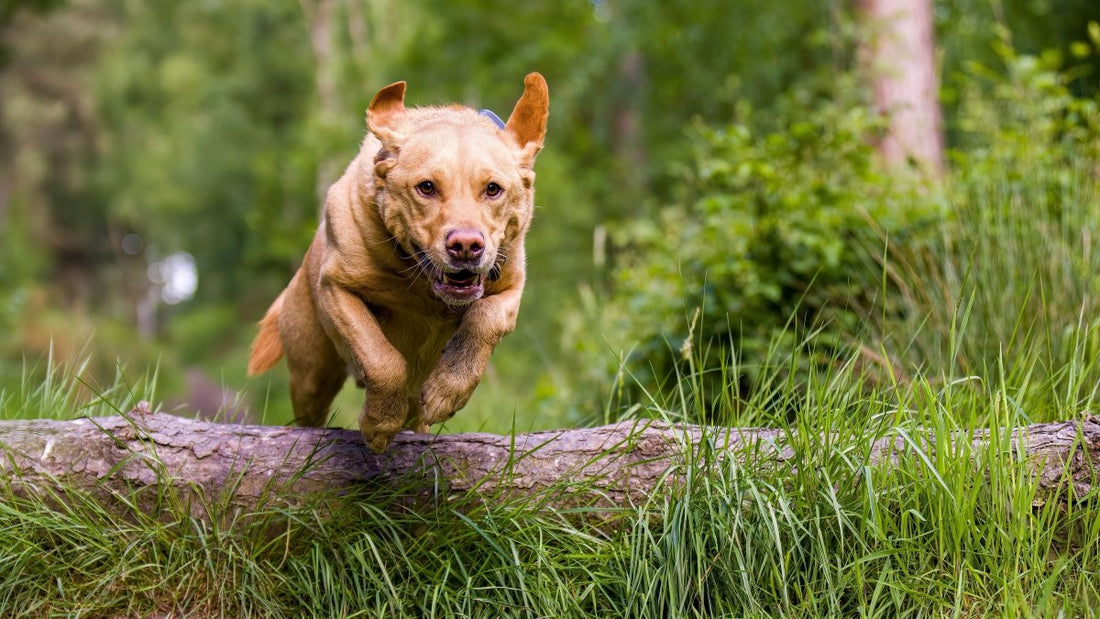Puberty is an exciting but also stressful phase – this applies not only to humans, but also to dogs. Suddenly, the previously well-behaved four-legged friend seems to have forgotten everything he's learned. He tests boundaries, his hearing is impaired, and his behavior seems completely different. But don't worry: every puberty phase ends. With patience, understanding, and loving consistency, you can optimally support your dog through this time.
What happens hormonally during puberty in dogs?
Hormonal changes in the body
Depending on the breed and size, puberty begins between approximately 6 and 12 months of age . During this time, your dog's hormonal balance undergoes fundamental changes. Sex hormones ( testosterone in males and estrogen in females) are released in increased amounts.
These hormones not only influence physical development (e.g., sexual maturity), but also have a strong impact on behavior. Dogs can often be insecure, more irritable, or particularly adventurous during this phase—this is a completely natural process.
First heat or marking behavior
- Female dogs are going into heat for the first time, so physical changes are occurring, and hormones can sometimes go haywire.
- Male dogs start to mark and the female dogs in the neighborhood become interesting.
Typical behavioral problems during puberty
Limits are tested
Your dog begins to implement his own ideas and questions rules. Things that once worked well—e.g., recall —suddenly seem to have vanished. This isn't a step backward in training; it's completely normal. Perseverance is the key.
Uncertainty and periods of fear
In addition to defiant behavior, dogs often go through so-called "fear phases" during puberty. They may suddenly become more jumpy or react more sensitively to new stimuli.
Energy surplus
Adolescent dogs have too much energy and, on the other hand, too little impulse control. They jump, bark, and romp – sometimes uncontrollably. This can be quite challenging.
How to support your dog during puberty
1. Patience is key
Even if it's nerve-wracking at times, stay calm and consistent. Your dog especially needs guidance and structure right now. Don't forget to reward good behavior.
2. Consistency and clear rules
Clear, fair rules help your dog find his way. Don't constantly change course, but stay on course – what's forbidden today should also be forbidden tomorrow and the day after.
3. Refresh your education
Repeat familiar signals playfully and in different situations. Small practice sessions spread throughout the day are more effective than long, one-off training sessions.
4. Physical and mental exercise
Provide adequate exercise—adapted to your dog's age and breed—and keep them mentally engaged. Nose work, small tricks, or intelligence toys promote concentration and are ideal for channeling excess energy.
5. Include rest periods
Adolescent dogs are often overstimulated. Provide regular rest periods and a place where your dog can relax undisturbed.
When does puberty end in dogs?
The duration of puberty varies depending on breed, gender, and individual personality. It typically completes between 18 and 24 months . Large breeds are considered late developers, so puberty can last longer.
Important: After hormonal puberty comes social maturity – so your dog will become a balanced, adult dog over time.
Tips for difficult days
- Humor helps : Sometimes it helps to take the situation with a smile and not personally – your dog is not doing this to annoy you.
- Exchange with other dog owners : Shared suffering is half the suffering! Exchanging ideas with like-minded people can help.
- Get professional help : A dog trainer can help you and your dog, for example, practice impulse control.
- Support relaxation: Reduce anxiety with natural relaxation products .
Conclusion: Puberty in dogs – a phase full of opportunities
While puberty is challenging, it's also an important time for bonding and development. With love, patience, and consistency, you can lay the foundation for a reliable, confident everyday companion during this time.
Stay strong – together you can make it through this turbulent time and grow into a great team!



